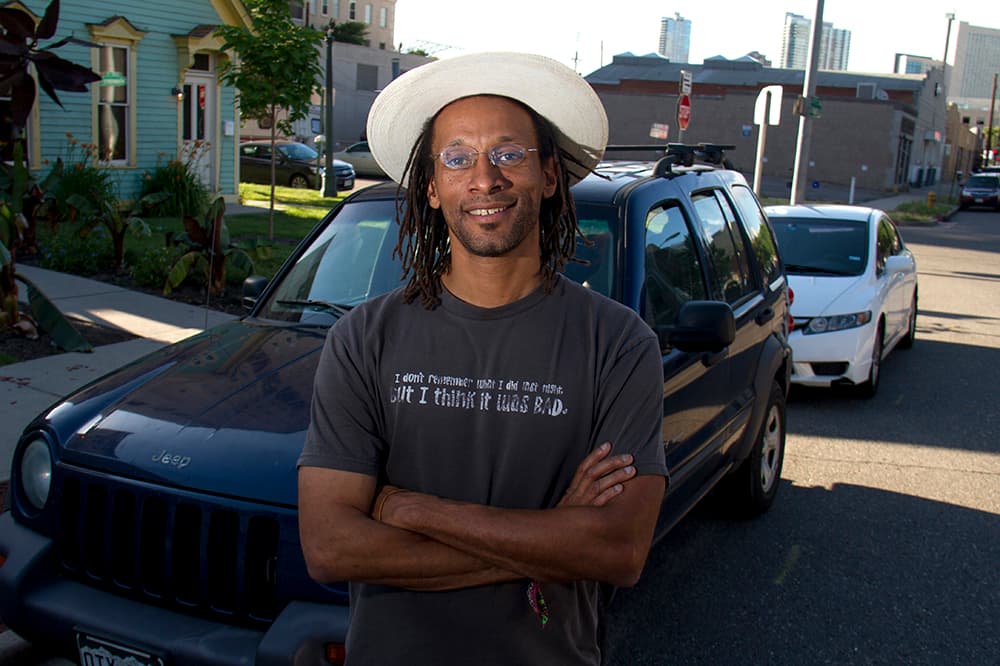
Brian Hewlett wants you to forget your Uber and Lyft apps, and he's not alone. Scroll through Craigslist and you'll find dozens of ads like his. "Cheap rides all over Denver!! Never pay high prices again," "You need a ride lets talk," each promising that when you ride with them, you'll save a ton of cash.
Hewlett generally charges $20 for the first 15 miles, but he's flexible about it.
"I negotiate the ride ahead of time and that means that person can say 'Well, I don't have this much money, I only have this much money. Is it possible for you to still give me a ride?' And the answer is yes. It's not going to be yes for Lyft or Uber," he says.
Plus, he says working outside of a ride-sharing company lets him get paid directly and allows him to choose his own customers.
"I don't have any person breathing down my back saying that you're going to be penalized because you didn't do this or you didn't do this right," Hewlett says.
But is it legal?
Hewlett says it's "absolutely perfectly legal" for riders to give him "a gift" for giving the ride.
What about the city of Denver? What's their stance on its legality?
"I have no idea," says Dan Rowlan, Denver spokesman for Excise and Licenses. "So we have in the Denver ordinance a herdic license, which is a really antiquated term, but it covers some forms of transportation, like limos, taxicabs, vans. Those people are licensed. Everyone else, there is no existing city license to get."
In other words, the city of Denver doesn't license cars being driven for Lyft, Uber or a personal business. But the state of Colorado does.
Terry Bote, spokesperson for the Colorado Public Utilities Commission, says that operations like Hewlett's fall under common carriage.
"Any type of transportation service where somebody is providing that service for compensation is regulated, and anybody providing that service is required to have authority from the commission," he says.
Nor does the gift distinction matter. Bote emphasizes that it's a matter of safety. Colorado wants to ensure that drivers have an adequate car and sufficient insurance. But he acknowledges that the department has a "limited enforcement section."
"If we get a complaint that someone is operating illegally, we will investigate that," he says. "Our first course of action would be education and warning so that they know what they're doing is not allowed."
Fear and trust
Hewlett acknowledges that some people might feel hesitant about hopping into a stranger's car. But that's part of the problem, he says.
"We have been a society that's been based on fear," Hewlett says. "You can't trust your neighbors, right? As we do more of this, we will find that we can trust our neighbors more."
Or maybe not. Established ride-sharing companies certainly don't have a perfect history of keeping people safe. Leaked Uber data suggests the company has thousands of complaints related to sexual assault. (Uber refutes that.) Drivers for both companies face passengers whose drunken actions put them as risk.
Hewlett, a self-identified social activist, says he started driving his car for cash when he needed money after moving to Colorado. But he's also on a mission to cut out the middleman.
In the year or so that he's been doing this, Hewlett says he's made about $1,000 in supplementary income.
If he doing the same work for Lyft, and earning Glassdoor's average $12 hourly wage for Denver, he'd make $1,000 in about two weeks, assuming a 40 hour work week. Working for Uber, it'd take over a month to earn as much.
But money's not the only benefit. He's also doing field research for a television show that he's producing called "Shroom Garden." The dramatic comedy would feature a driver who, like Hewlett, works for his own ridesharing company. Naturally, the idea came after Hewlett met the show's co-creator while giving him a ride.













